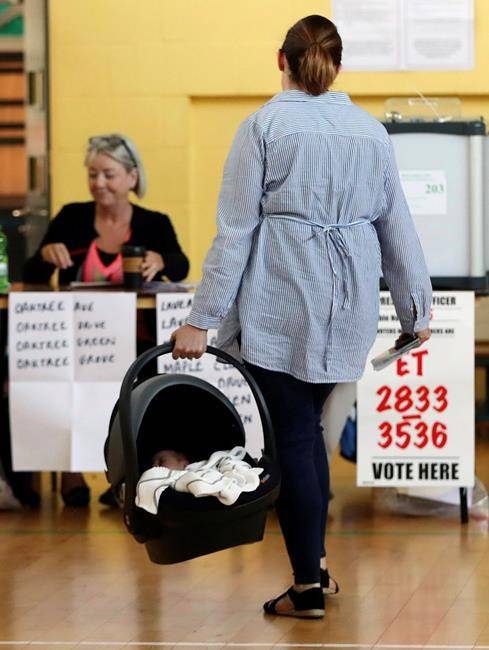Abortion rights activists proclaimed victory for Irish women Saturday as referendum results indicated voters in largely Roman Catholic Ireland overwhelmingly backed repealing a 1983 constitutional ban on abortions.
Prime Minister Leo Varadkar, speaking Saturday after exit polls suggested voters chose to liberalize Ireland’s strict abortion laws by a margin of more than two to one, called the result the culmination of a “quiet revolution.”
“The people have spoken,” said Varadkar, a medical doctor who campaigned for repeal in Friday’s historic referendum. “The people have said that we want a modern constitution for a modern country, that we trust women and we respect them to make the right decision and the right choices about their health care.”
Varadkar said the large margin of victory will give his government a greater mandate when drafting abortion legislation that will be submitted for parliamentary approval in a matter of months.
Voters were asked whether they wanted to keep or repeal the Eighth Amendment to Ireland’s Constitution, which requires authorities to treat a fetus and its mother as equals under the law. It outlawed all abortions until 2014, when the procedure started being allowed in rare cases when a woman’s life was in danger.
Campaigners who have fought for more than three decades to remove the Eighth Amendment abortion ban from Ireland’s Constitution hailed the referendum vote as a major breakthrough for the largely Catholic nation.
READ MORE: Trudeau abortion policy raises ire of U.S. right
“This is a monumental day for women in Ireland,” said Orla O’Connor, co-director of the Together for Yes group. “This is about women taking their rightful place in Irish society, finally.”
The vote is a “rejection of an Ireland that treated women as second-class citizens,” she said, adding: “This is about women’s equality and this day brings massive change, monumental change for women in Ireland, and there is no going back.”
If the partial results hold up, the referendum would likely end the need for thousands of Irish women to travel abroad — mostly to neighbouring Britain — for abortions they can’t get at home.
Opponents of the repeal movement have conceded they have no chance of victory.
John McGuirk, spokesman for the Save the 8th group, told Irish television Saturday that many Irish citizens will not recognize the country they are waking up in. The group said on its website that Irish voters have created a “tragedy of historic proportions,” but McGuirk said the vote must be respected.
“You can still passionately believe that the decision of the people is wrong, as I happen to do, and accept it,” he said.
Official counting for Friday’s referendum on whether or not to liberalize Ireland’s abortion laws was still underway, and final results were not expected until later Saturday. More than half of the country’s 40 regions had been counted by 4:00 p.m. and showed 68 per cent supporting the amendment’s repeal.
Exit polls from the Irish Times and broadcaster RTE suggested the Irish people have voted by nearly 70 per cent to repeal the Eighth Amendment.
It indicated that about 72 per cent of women voted “yes” along with about 66 per cent of men. The strongest backing came from younger voters — the exit poll said the only age group in which a majority voted “no” were voters who are 65 or older. The poll had a margin of error of plus or minus 1.6 per cent.
The magnitude of the predicted victory exceeded the expectations of abortion rights activists. Surprisingly, they also suggest that supporters of more liberal abortion laws may have triumphed throughout the country, not just in the cosmopolitan capital, Dublin, where a strong youth vote had been anticipated.
Ireland’s parliament will be charged with coming up with new abortion laws in the coming months. The government proposes to allow abortion in the first 12 weeks of pregnancy, with later terminations allowed in some cases.
The Associated Press



